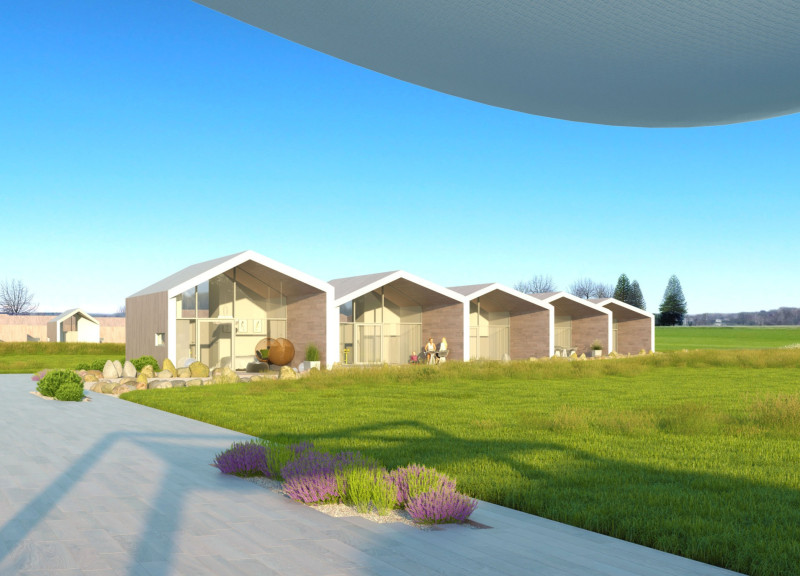5 key facts about this project
The One Line Village Cabin Prototype is an example of efficient compact living, designed to fit within a space of just 20 square meters. Set against the backdrop of modern housing challenges, it aims to provide a practical solution to the needs of urban residents. The emphasis on functionality allows for necessary living conditions, creating a space that serves daily life without excess.
Layout and Functionality
The layout is carefully arranged into clear functional areas. The sleeping section can accommodate either a double bed or two twin beds, giving occupants options depending on their needs. This adaptability is crucial in a limited space, where every square meter counts. A compact kitchenette provides essential cooking facilities, promoting independence and convenience for users.
Storage Solutions
The cabin addresses storage needs by including a dedicated area for luggage and personal items. This feature ensures that the space remains organized and tidy, allowing residents to store their belongings without overcrowding. Additionally, the cabin is equipped with a shower and toilet, ensuring that all foundational living requirements are met within a compact footprint.
Circulation and Interaction
Circulation has been thoughtfully considered in the layout, allowing for smooth movement between different areas. The internal and external pathways facilitate easy navigation, contributing to a positive experience for users. A longitudinal section view offers insights into how these various spaces connect, promoting an understanding of their relationship to one another.
Architectural Concept
The concept behind the design leans toward minimalism and practicality. By focusing on essential living functions, it avoids unnecessary complexity. This approach aligns with current trends aimed at promoting sustainability and efficient use of resources. The cabin’s simple yet effective architecture does not distract from its purpose, reinforcing its role as a functional living space.
The exterior likely features clean lines and durable finishes, complementing the overall design while ensuring it withstands the test of time.





















































